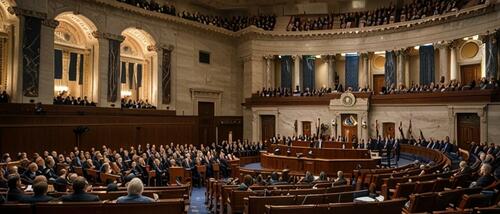Authored by Colin Crossman via Bitcoin Magazine,
Following the announcement on July 27th at the Bitcoin conference in Nashville, the “Boosting Innovation, Technology, and Competitiveness through Optimized Investment Nationwide” or BITCOIN Act of 2024, introduced by Senator Cynthia Lummis of Wyoming, seeks to firmly establish Bitcoin as a strategic asset in the United States’ financial arsenal. At its core, the Act proposes the creation of a Strategic Bitcoin Reserve (SBR) and a structured Bitcoin Purchase Program, and comprehensive national custody policy. While the bill is quite brief, what follows is a breakdown of the Act's key provisions, their implications, and the innovative funding mechanisms employed.
The Strategic Bitcoin Reserve
The establishment of the SBR signifies a paradigm shift in how the United States government manages and custodies Bitcoin at the Federal level. Mirroring many of the best practices currently discussed in the field, such as geographically distributed keys, a cold storage mandate, and independent proof-of-reserves audits, the SBR creates a decentralized network of secure Bitcoin storage facilities across the United States. (Notably not mentioned, however, is a multi-signature system, however it is not explicitly prevented either.) The Act thereby aims to protect against breaches and vulnerabilities to a single catastrophic event.
Bitcoin Purchase Program
The Act lays out a plan to acquire up to 1,000,000 Bitcoins over a five-year period, capping purchases at 200,000 Bitcoins annually, and then holding such reserves for twenty years. Furthermore, the Act places limits on the use and sale of the reserve following the holding period. During the minimum holding period, no Bitcoin held by the Federal government in the SBR may be sold, swapped, auctioned, encumbered, or otherwise disposed of for any purpose other than retiring outstanding Federal debt instruments.
Funding the Bitcoin Purchase Program
In order to minimize the impact on taxpayers, the Act employs several methods to finance the acquisition of Bitcoin, ensuring economic sustainability without increasing Federal debt.
It first proposes an amendment to the Federal Reserve Act to reallocate discretionary surplus funds from the Federal Reserve Banks. This reduces the discretionary surplus funds from $6.825 billion to $2.4 billion. The Federal Reserve is then required to remit net earnings to the Treasury, and the Act redirects the first $6 billion towards purchasing Bitcoin.
Furthermore, the Act also involves an adjustment in the valuation of gold certificates held by the Federal Reserve. Currently, the Federal Reserve holds gold certificates which are marked at $42.22/oz, while the market price of gold is closer to $2,400 today. Essentially, this forces the Federal Reserve to mark-to-market the gold certificates, then remit the gain on the gold to the Treasury for the purpose of funding the initial acquisition.
State Participation
The Act contemplates accepting State-level Bitcoin holdings into the national framework through voluntary participation. This aspect allows individual states to store their Bitcoin holdings within the SBR in segregated accounts. By offering this option, the Federal government allows (but does not require) States to add Bitcoin to their own treasuries, without having to reinvent and reimplement a robust security plan.
States participating in the program maintain exclusive and segregated title to their Bitcoin, and the right to withdraw or transfer their Bitcoin holdings from the SBR, subject to the terms of their contractual agreement and any applicable Federal regulations, but are not subject to the Federal restrictions otherwise applicable to the SBR. This flexibility ensures that States can manage their Bitcoin treasuries in accordance with their specific financial strategies and needs.
Implications & Next Steps
By tapping into existing financial resources and leveraging the economic value of gold, the BITCOIN Act aims to acquire Bitcoin without directly burdening taxpayers or increasing federal debt. This multifaceted approach underscores the innovative financial strategies the Act employs to integrate Bitcoin into the national reserve system, setting the stage for a comprehensive Bitcoin policy throughout all levels of the United States government.
Readers who wish to support the Act should contact their legislators, either directly or through a tool such as this one built by the Satoshi Action Fund.
